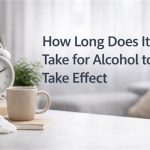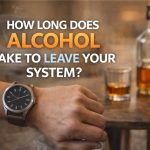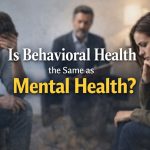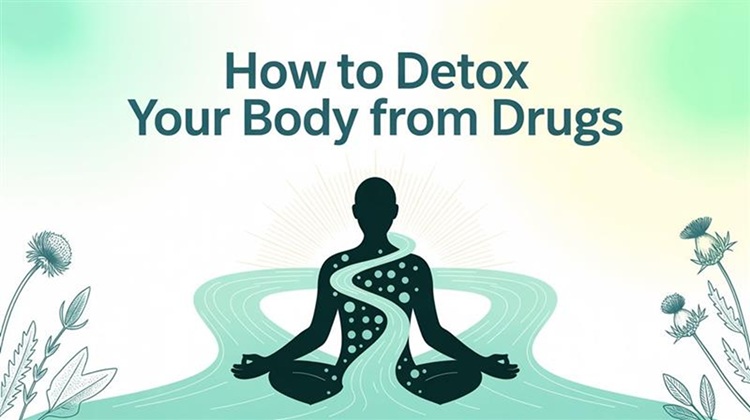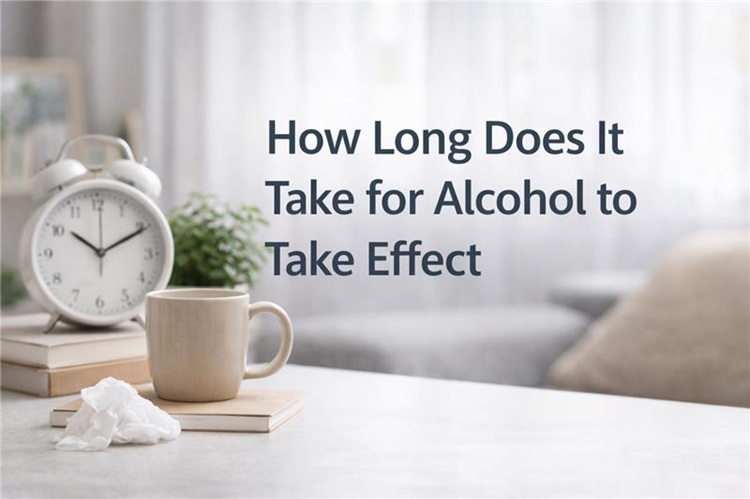All of us have been there, of course, endless scrolling on social media, shopping to this end, and lottery tickets just one more time. Although they may seem great on the spot, when they begin to take over your life, it becomes more than just a bad habit. It’s a behavioral addiction. This is a very real and treatable disorder in which the doing of everyday activities has become compulsive, disruptive and damaging. Here at DeLand Treatment Solutions, we know firsthand how powerful a behavioral addiction can be and how they have the power to alienate a person, overwhelm and destroy the person and family. But a complete recovery is very possible. So let’s add up the facts you need to know.
What is Behavioral Addiction?
Behavioral addiction (also known as process addiction) is when you become physically and mentally addicted to an activity, even when it is causing serious negative consequences in your life. It does not involve a chemical such as alcohol or drugs. Instead, it is the behavior itself – gaming, shopping, or working, which gets the reward part of the brain going. Over time, the brain becomes addicted to the dopamine release from the activity and it becomes difficult to stop. This can result in financial difficulties, strain in personal relationships, health problems and emotional distress. The main thing is that the behavior feels like it is out of your control, just like a substance use disorder.
Is Gambling a Behavioral Addiction?
Yes, behavioral addiction is a prime candidate and gambling is one of them. It stimulates the reward system of the brain like drugs and as such instigates cycle of dependency between craving, betting and relief. What starts as a social activity can turn into an addictive gambling, where you are chasing losses, lying about your activity to people or using savings to continue gambling. Gambling disorder is even in abundance in the DSM-5 (the psychiatrists use as a tool to diagnose psychological disorders or conditions) as a legitimate behavioral addiction. It’s not a moral flaw, it’s a medical condition to be treated with compassion and care.
Behavioral Addiction Types
Behavioral addictions have a large variety but they all share this pattern of compulsive involvement. Common types include:
- Financial: Buying tickets, borrowing from family or friends, committing crimes, owing money due to gambling addiction, etc.
- Internet addiction: Excessive use of social media, gaming or browsing, which interferes with real-life interactions.
- Shopping addiction: You buy things needlessly and compulsively even though it makes you unstable financially.
- Gaming addiction: Prioritizing video games at work/sleep/other relationships (now recognized by the WHO).
- Food addiction: Using food to comfort themselves instead of feeling emotions and end up overeating or developing health issues.
- Work addiction: Being Unable to unplug from work and being burnt out, while ignoring personal life.
- Exercise addiction: Excessive exercising to the extent of causing injury or not considering the body’s needs
- Sex addiction: Serial sexual compulsive actions that have detrimental effects on friendships or one’s self-esteem.
- Porn addiction: Fapping and porn affecting daily life.

100% Confidential Support is Available 24/7
No matter what you’re going through, you’re not alone. Our dedicated team is here to provide a safe, judgment-free space where you can talk openly and honestly. Whether you need emotional support, resources, or just someone to listen.
We’re here for you—completely confidential and always respectful of your privacy. Call us today!
Behavioral Addiction Symptoms
Getting the behavior addiction at its early stage is always an advantage. The following warning signs must be noted:
Inability to cut back: You are unable to cut back if you want to.
- Addiction: Performing, planning, or recovering from too much of a specific activity.
- Neglect: Failure to do what you are expected to do at work, school or at home
- Withdrawal: If you cannot engage in the behavior, you will become irritable, anxious or depressed.
- Trauma: In which the behaviour causes the loss of money, strained relationships, physical problems or legal problems
- Escalation: Continued use of the behavior until the same level of high is achieved (the tolerance)
- Denying: You don’t want people to know about or disrespect you for the extent of the lying you do.
- Loss of interest: You lose interest in activities or hobbies that you used to enjoy
Although for many of these it could be helpful to seek outside assistance.
Behavioral Addiction Causes
There is no single cause for behavioral addiction. It is generally a combination of factors:
- Brain chemistry: Dopamine and other neurotransmitters form a “feel-good” feedback system, which reinforces the activity.
- Genetics: Having a family history of addiction can make you more prone to addiction.
- Mental health: Mental health conditions like depression, anxiety, Attention Deficit Hyperactivity Disorder (ADHD), trauma, etc., may also be a motive, as the individual may resort to taking drugs to self-medicate.
- Environments engaging in chronic stress, having easy access to the behavior (very easy online gambling, etc.), or social isolation may be involved.
- Personality traits: You can be impulsive, sensation seeking and think lowly of yourself
A reasonable knowledge of the underlying (etiological) factor(s) is a valuable guide for adapting the appropriate treatment.
Behavioral Addiction Disorder
Behavioral addiction disorder is a diagnosis that is made when a behavior is uncontrollable and damaging. It is categorized in the DSM-5 in the group of “Substance-Related and Addictive Disorders” along with drug and alcohol addictions. This classification helps to verify that behavioral addictions are health problems and not character disorders. Like any other disease, they must have evidence-based treatment.
Behavioral Addiction Examples
Behaviors – Theories – Cases Formulate behavioral addiction:
Maria is a busy mom who sought out shopping online to reduce her stress. Soon, she was purchasing clothes daily, secreting packages, and overcharging credit cards.
James started playing video games after working hours to relax. Within months he was staying up until 3:00 a.m. missing assignments, and shouting at his spouse.
David used to play poker nights and would gamble on occasion. But after a significant win, he began to gamble online every day, depleting his savings and committing fraud against his family.
These are stories of how fast a rewarding behavior can turn into a prison.
How Do Psychologists View Behavior Addictions?
Most experts would point to these conditions being on the same spectrum as addictions to substances, learned addictions that actually form neural circuits. Cognitive-behavioral therapy (CBT) and motivational interviewing (which is proven for alcohol and drug problems) work here as well. Importantly, stigma can be reduced when a person realizes it’s a treatable brain disorder and not a moral failing.
How to Treat Behavioral Addiction
Behavioral addiction rehab is geared towards curbing the cycle and living a sustainable life. It often involves:
- Detox and Withdrawal Management: Although you are no longer taking any substance, you might need to be helped through the emotional impacts of withdrawal, such as anxiety or depression.
- Therapy: Cognitive behavioral therapy and dialectical behavioral therapy help you learn to recognize and establish alternative thought processes and replace the negative thought processes. Peer support will be used in the group therapy.
- Medications: Medicines to help with the depression/anxiety that is the root of the problem will be helpful.
- Behavioral Modification: Creating the habits of healthy activities (exercises, hobbies) to replace the addictive behavior.
- Accountability & Social Support: Engaging in treatment can involve the participation of one’s family members or going to support groups (like SMART Recovery), which can provide accountability.
- Relapse Prevention: Understanding how to identify the triggers and develop a plan of action to prevent relapses.
- Personalizing treatment: Treatment that is effective for one person might not be effective for another.

Behavioral Addiction Treatment at DeLand Treatment Solutions
At DeLand Treatment Solutions, we prefer evidence-based addiction behavioral treatment. The intervention offered is a mix of therapy, education and community support to get you back on your feet. We offer:
- Individual Counselling: Delivers individual counselling with qualified therapists to decipher the cause and coping mechanism of the problem.
- Group Therapy: A Safe and nourishing group to experience and learn from other group members.
- Family Programs: Understanding addiction and healing as a family.
- Aftercare Planning: Addiction recovery aftercare maintenance plan aftercare planning.
However, you don’t need to battle this war alone, as the world is out there to help you in the fight for your life. We are here to go through it all with you, by your side, every step of the way!
Ready to start taking the first step towards behavioral addiction recovery?
Contact DeLand Treatment Solutions today for a private consultation. Our compassionate team and practitioners will temporarily come to your rescue just by listening to you and bringing you together to heal by creating a plan of your own. Call us or visit our website for information regarding our program.
FAQ’s About Behavioral Addiction
What is a behavioral addiction?
A behavioral addiction is a compulsive need to engage in an activity (like gambling, gaming, or shopping) despite negative consequences. It hijacks the brain’s reward system, making the behavior feel uncontrollable and essential for emotional relief.
What are the 5 behavioral addictions?
Common behavioral addictions include gambling disorder, internet addiction, shopping addiction, gaming addiction, and food addiction. Each involves a pattern of compulsive behavior that disrupts daily life.
What are the 8 behavioral warning signs of addiction?
Key signs are loss of control, obsession with the behavior, neglecting responsibilities, withdrawal symptoms when stopping, continuing despite harm, needing more for the same effect, lying about the behavior, and losing interest in other activities.
What are the 4 C’s of behavioral addiction?
Craving, loss of Control, Compulsion to use, and Continued use despite consequences summarize the addictive cycle.
How to break a behavioral addiction?
A mix of professional help (therapy, possible medication), structured routines, trigger management, social support, and digital or environmental safeguards can interrupt the cycle and build new habits.
What are the signs of addictive behavior?
Look for escalating time spent, hiding the behavior, irritability when prevented, neglect of responsibilities, and using the activity to cope with stress or emotions.
Can behavioral addictions be cured?
While “cure” implies permanence, most experts prefer “managed recovery.” With treatment and ongoing support, many people regain control and live symptom-free.
What are the top 3 addictions?
Globally, tobacco, alcohol, and gambling rank highest in prevalence and economic impact, though internet and gaming are rapidly rising.
What are the 5 warning signs of addiction?
Cravings, loss of control, neglecting obligations, tolerance, and withdrawal-like discomfort are classic red flags signaling a need for evaluation.







